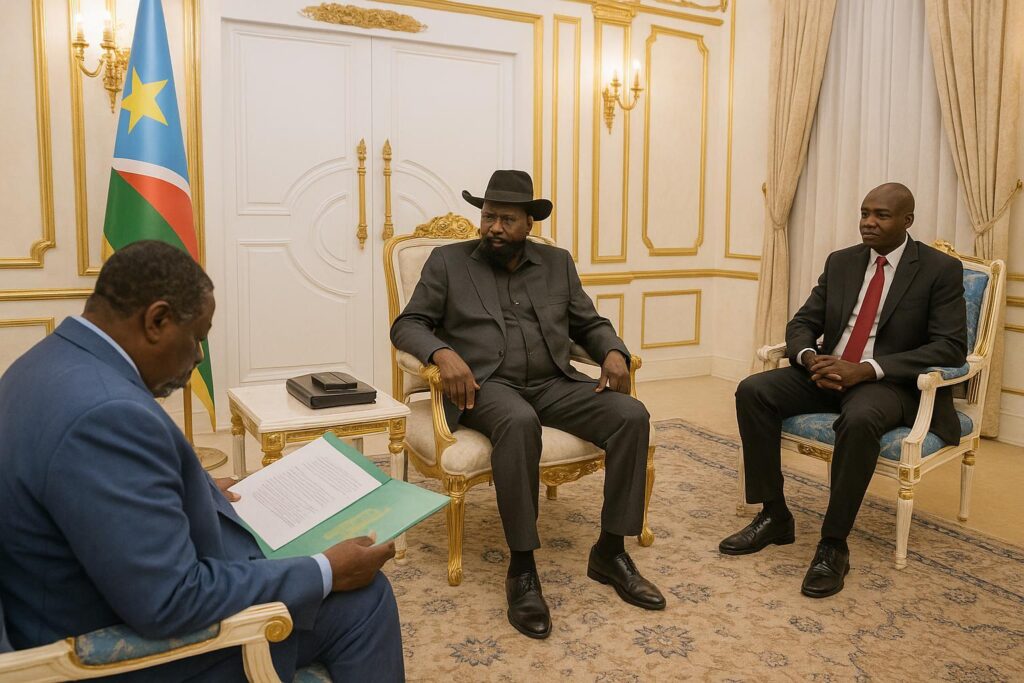Governor’s Security Brief to Presidency
Governor Rabi Mujung Emmanuel met President Salva Kiir in Juba to present an update on Central Equatoria State.
He told the Head of State that despite sporadic incidents, the overall security landscape remains “largely stable and manageable”, according to a statement from the Presidency.
Localised Clashes in Greater Yei
Recent confrontations between governmental troops and opposition elements in Morobo and Yei River counties displaced families and disrupted farming cycles.
Road ambushes on the Yei–Juba and Morobo–Kaya corridors highlighted residual risks, yet patrols have been intensified to reassure traders and commuters.
Border Management Efforts in Kajokeji
Mujung praised national authorities for rapidly deploying joint forces around Kajokeji’s porous border, curbing cross-border skirmishes and cattle raids.
Officials in Juba argue that securing frontier villages is central to the state’s recovery plan and regional trade ambitions.
Community Reconciliation Drive in Terekeka
A state-wide peace and reconciliation forum in Terekeka gathered chiefs, clergy and youth leaders to discuss land disputes, returnee integration and trauma healing, organisers said.
Delegates adopted a communiqué urging dialogue over armed response, an approach observers consider critical to preventing violence from moving north along the Nile corridor.
Youth Voices Call for Sustained Peace
Student leader Achol Lado noted that “peace dividends must translate into classrooms, clinics and jobs, not just statistics”, echoing concerns that stability should be felt at household level.
Civil society groups intend to monitor humanitarian corridors and alert authorities to emerging flashpoints, reinforcing a community-centred security model endorsed by Governor Mujung.
Outlook for Central Equatoria
With presidential elections on the horizon, analysts suggest a stable Central Equatoria could anchor nationwide transition, provided reconciliation efforts outpace sporadic violence.
For now, the governor’s report frames the state as a cautiously hopeful case study in post-conflict governance.


